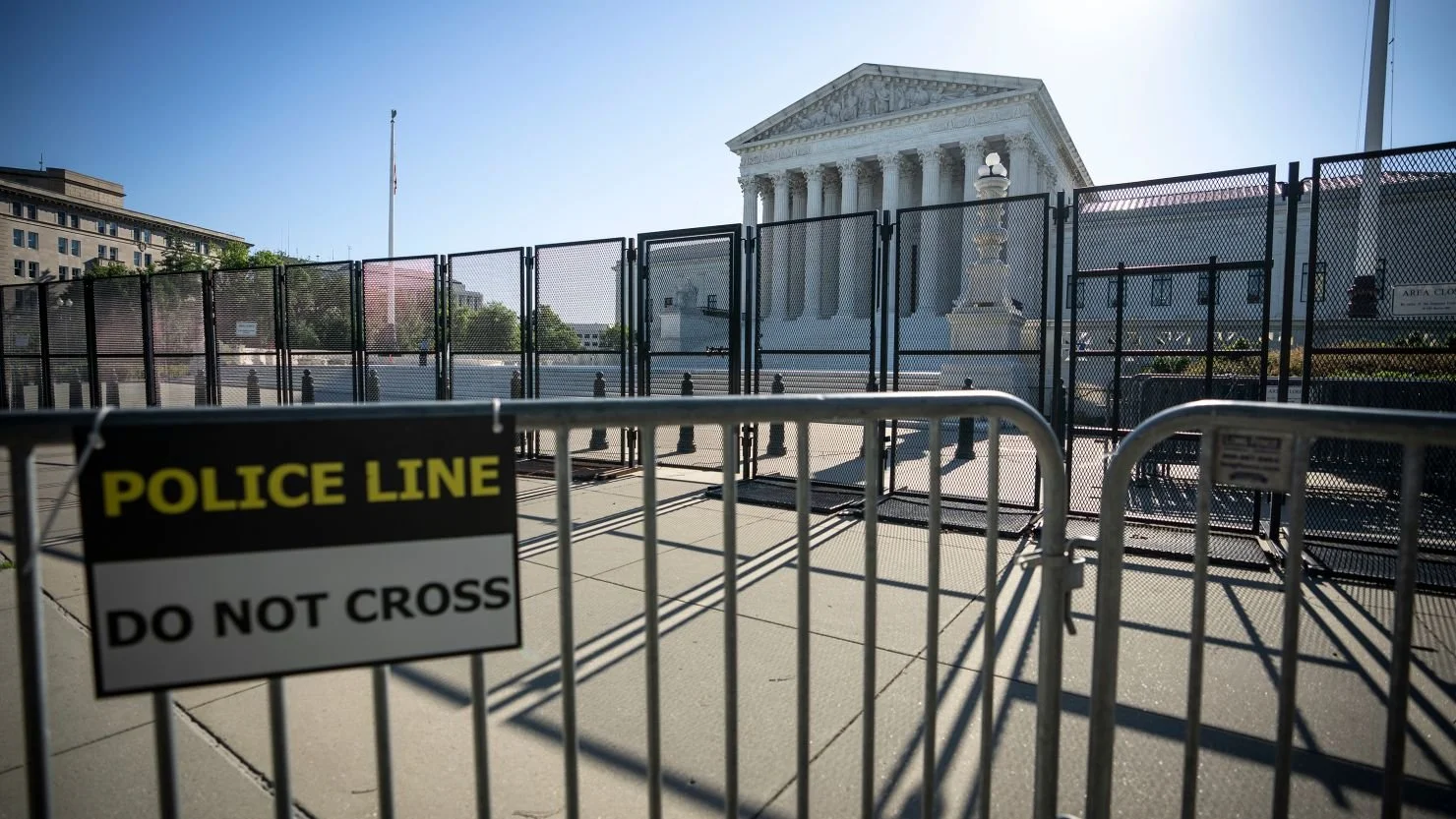UT Dallas Undergraduate Law Review
This digital journal features all written work produced by members of the Undergraduate Law Review during the semester. While select pieces are also highlighted in our annual print publication, this collection showcases the full range of research, analysis, and commentary developed by our writers throughout the term.
Separating Procedure from Justice: Racialized Enforcement in Vasquez Perdomo v. Noem
“In Separating Procedure from Justice: Racialized Enforcement in Vasquez Perdomo v. Noem, Mia Files exposes the constitutional blind spots that arise from the Supreme Court's compartmentalization of the Fourth and Fourteenth Amendments in its recent decision in Vasquez Perdomo v. Noem. Edited and supported by Staff Editor Carys Farrar, Managing Editor Sean Sudalaimani, and Executive Editor Sudipta Rout, this article thoroughly reveals the tensions between procedural safety and equal protection that are at play amidst the framework of constitutional law. Files argues that the application of formalism and constitutional minimalism present in Vasquez allows for enforcement practices that, while lawful on paper, continue to perpetuate racial bias and inequities that undermine equal protection.” – Sean Sudalaimani, Managing Editor
Toward Uniformity and Justice: A Federal Solution for Juvenile Sentencing Reform
“In Toward Uniformity and Justice: A Federal Solution for Juvenile Sentencing Reform, Fatema Jackwala contends that the existing patchwork of juvenile sentencing laws in the United States inadequately protects youth from disproportionate punishment. Edited and supported by Managing Editor Mashal Natha and Staff Editor Samra Khan, the piece draws on legal doctrine, developmental science, and empirical research to advocate for a federal rehabilitative standard that would promote fair, proportionate, and individualized treatment for all juveniles.” – Mashal Natha, Managing Editor
Diluting Futures: At-Large Voting, Minority Representation and Section 2 Remedies in Texas ISDs
“In Diluting Futures: At-Large Voting, Minority Representation and Section 2 Remedies in Texas ISDs, Nathan Banh considers at-large voting districts for Texas Independent School Districts (ISDs) and their relationship to minority vote dilution. Edited and supported by Managing Editor Ananya Sankaran and Staff Editor Brayden Wiese, this piece considers the merits and drawbacks of different electoral systems. Banh argues that single-member districts emerge as the most constitutionally sound remedy for minority vote dilution in Texas ISDs.” – Ananya Sankaran, Managing Editor
A Prescribed Identity Crisis: Resolving the Ambiguous Legal Classification of Medical Residents
“In A Prescribed Identity Crisis: Resolving Medical Residents’ Ambiguous Legal Classification, Andrea Nguyen dissects the inconsistencies and implications surrounding the legal status of resident physicians. Edited and supported by Staff Editor Priya Melepat, Managing Editor Sean Sudalaimani, and Executive Editor Sudipta Rout, this article analyzes whether resident physicians should be interpreted by the law as students or employees, exposing the underlying conflict between formalism and functionalism that has perpetuated this ambiguity. Finally, Nguyen outlines judicial and administrative solutions that would reinforce a universal classification of residents as employees and mitigate the negative consequences residents face from their unclear status.” – Sean Sudalaimani, Managing Editor
A System Based on Geography: Reconsidering Fear, Conduct, and PRO Eligibility
“In A System Based on Geography: Reconsidering Fear, Conduct, and PRO Eligibility, Arzoo Daredia examines differences in how requests for permanent restraining orders (PROs) are assessed in different jurisdictions, with an emphasis on how inconsistent standards for determining emotional stress lead to substandard protections for victims of domestic violence. Edited and supported by Managing Editor Skandha Gopinath, the piece provides an overview of how anti-stalking legislation and precedent vary from state to state. Daredia argues in favor of a consistent federal standard based on existing precedent that eliminates discrepancies between states and focuses on mitigating risk to potential victims of domestic violence.” – Skandha Gopinath, Managing Editor
"Knowing, Voluntary, and Intelligent” for Whom? Language Access and Plea Bargains in Federal Court
“In ‘Knowing, Voluntary, and Intelligent’ for Whom? Language Access and Plea Bargains in Federal Court, Loan Tran examines how language barriers can lead limited English proficiency (LEP) defendants to enter uninformed plea deals, which threatens due process. Edited and supported by Managing Editor Gabriel Hentschel, the piece argues for certified interpreters at plea hearings and audio recordings to verify accuracy. This article makes the case that meaningful comprehension is a prerequisite for justice.” – Gabriel Hentschel, Managing Editor
The Best Interest of the Child: An Empty Standard in the U.S. Immigration System
“In The Best Interest of the Child: An Empty Standard in the U.S. Immigration System, Melody Nguyen examines the structural exclusion of the “best interests of the child” standard from U.S. immigration law, demonstrating how unaccompanied minors in removal proceedings are left without meaningful welfare safeguards. Edited and supported by Managing Editor Mashal Natha and Staff Editor Anthony Jesse Hembree, this piece contends that this omission reflects a broader inconsistency within the nation’s child-protection framework.” – Mashal Natha, Managing Editor
Child Marriage Law in India and Its Failure to Protect Victims: The Prohibition Of Child Marriage Act
“In her article Child Marriage Law in India and Its Failure to Protect Victims: The Prohibition of Child Marriage Act, Trisha Das analyzes the flaws in the Prohibition of Child Marriage Act (PCMA) that have allowed child marriages to legally continue in India. Supported and edited by managing editor Colin Hollingsead, the article discusses how existing case precedent, international norms, and enforcement mechanisms can be used to reform the PCMA and render all child marriages in India void. Das argues that rendering all child marriages in India void from the start would protect current victims of the exploitative practice while upholding legal Precedent.” - Colin Hollingsead, Managing Editor
A Whale of a Problem: When Wildlife Conservation Statutes Become as Endangered as the Species They Protect
“In A Whale of a Problem: When Wildlife Conservation Statutes Become as Endangered as the Species They Protect, Sean Sudalaimani traces exactly how the North Atlantic right whale’s survival is being threatened not only by human activity, but by the slow weakening of the very laws meant to protect it. Edited and supported by Managing Editor Skandha Gopinath and Executive Editor Rohith Raman, the paper explains how economic pressure from lobster and crab fisheries, alongside external variables like agency delay, judicial policies, and legislative intervention-based setbacks and other smaller distant variables, have broken up the enforcement of the Endangered Species Act and Marine Mammal Protection Act. The article then offers a very realistic path forward. Firstly, this involves ensuring a tighter judicial scrutiny of agency inaction through TRAC v. FCC, and secondly calls for better evidence-based agency reasoning that can earn weight under Skidmore after recent shifts in administrative law.” – Rohith Raman, Executive Editor
Prescribing the Truth: A Formal Defense of the Supreme Court Ruling in Sorrell V. IMS Health
“In Prescribing the Truth: A Formal Defense of the Supreme Court Ruling in Sorrell V. IMS Health, Fadilah Mohiuddin revisits a vital case in commercial speech law that has, in recent literature, largely been controversial and seen as expanding commercial speech rights beyond reasonable limits. Edited and supported by Editor-in-Chief Sudipta Rout and Managing Editor Sean Sudalaimani, this note contends that Sorrell was rightly decided by revisiting the Court’s rationale, defending it against dissents and scholarly critiques, and considering the case’s impact on the future of commercial speech doctrine.” – Sudipta Rout, Editor-in-Chief
From Disclosure to Accountability: Corporate Responsibility in Labor Trafficking
“In her article From Disclosure to Accountability: Corporate Responsibility in Labor Trafficking, Sumedha Srilakshmidaran outlines how current U.S. law allows businesses to profit from the exploitation of labor trafficking in their supply chains. Supported and edited by managing editor Colin Hollingsead, the article covers existing domestic and international statutes that outlaw labor trafficking and illustrates how current U.S law fails to hold businesses profiting from labor trafficking sufficiently accountable. Srilakshmidaran argues that U.S labor trafficking law needs to be reformed to increase accountability and that switching to a proactive legal approach, rather than the legal system’s more reactive approach, is necessary to root labor trafficking out of American supply chains.” – Colin Hollingsead, Managing Editor
Federal Preemption and State Sovereignty in PBM Regulation: A Constitutional and Regulatory Analysis
“In Pharmacy Benefit Managers and the Constitution: A Legal Analysis of Federal Preemption, State Sovereignty, and the Path Toward Balanced Regulatory Reform in Public Health, Spandan Mukherjee explores how legal conflicts between federal and state authority allow Pharmacy Benefit Managers (PBMs) to operate with minimal oversight. Mukherjee argues that outdated preemption doctrine and antitrust loopholes enable PBMs to sidestep accountability—contributing to rising drug costs and weakened consumer protections. The piece calls for targeted federal reform to close regulatory gaps and realign healthcare law with modern public health needs.” – Sofia Meinardus, Managing Editor
Reforming Section 230: Taking Algorithmic Accountability
“In Reforming Section 230: Taking Algorithmic Accountability, Taher Mogri discusses how algorithmic governance affects political expression in social media platforms, focusing on Section 230 of the Communications Decency Act and its role in defending platforms from liability guidelines. It uses cases such as Gonzalez v. Google, to show how courts traditionally judge algorithmic amplification, questioning the extent to which tech companies should be held accountable for content moderation and the social consequences of algorithmic design.” – Rohith Raman, Managing Editor
Coercing Justice: The U.S. Sanctions That Shake the Foundations of International Law
“In Coercing Justice: The U.S. Sanctions That Shake the Foundations of International Law, Zohaib Shahid analyzes the recent sanctioning of the International Criminal Court (ICC) by the United States, following the Court’s issuance of arrest warrants for Israeli officials, including Prime Minister Benjamin Netanyahu. Shahid argues that these sanctions violate binding principles of international law and compromise the independence of the international judiciary. He also proposes legal reforms to counteract the U.S. government's extraterritorial pressure on global legal institutions.” – Sudipta Rout, Managing Editor
Science, Sovereignty, and the Self: Reconciling Federal and State Authority Amidst Human Cloning's Regulatory Vacuum
“In Science, Sovereignty, and the Self: Reconciling Federal and State Authority Amidst Human Cloning's Regulatory Vacuum, Sean Sudalaimani analyzes the deep constitutional and policy gaps that have left human cloning largely unregulated in the United States. Despite rapid scientific advances, outdated federal amendments and a patchwork of state laws have failed to create a coherent legal framework. Sudalaimani explores why past attempts at federal legislation have stalled and offers a forward-looking solution: a constitutionally grounded, ethically adaptable federal model that distinguishes between reproductive and therapeutic cloning. This piece highlights the need for urgent, principled action as science races ahead of the law.” – Sudipta Rout, Rohith Raman, and Sofia Meinardus, Managing Editors
Throwing Away the Key: The Legal Ramifications of Mandated Encryption Backdoors
“In Throwing Away the Key: The Legal Ramifications of Mandated Encryption Backdoors, Skandha Gopinath examines the growing tension between technology companies and the government over mandatory access to encrypted communications. Gopinath argues that requiring companies to implement encryption backdoors violates their right to expressive speech under the compelled speech doctrine and exceeds the statutory authority granted to the government to intercept communications.” – Sudipta Rout, Managing Editor
Executive Abdication at Abbey Gate: Statutory Violations and Separation-of-Powers Breakdown in the 2021 Afghanistan Withdrawal
“In Executive Abdication at Abbey Gate: Statutory Violations and Separation-of-Powers Breakdown in the 2021 Afghanistan Withdrawal, Kiran Malik investigates how the chaotic non-combatant evacuation (NEO) from Afghanistan—initiated by President Trump and completed under President Biden—was marked by devastating legal and procedural failures. Malik argues that the Department of State, the National Security Council, the Department of Justice, and other executive actors violated key statutory obligations and international agreements. The piece links these failures to a broader collapse in interagency planning, coordination, and oversight that ultimately contributed to the deadly Abbey Gate bombing.” – Zara Jamshed, Managing Editor
Legal Chasms in Protecting Child Influencers: How U.S. Law Fails Minors Behind the Screen
“In Legal Chasms in Protecting Child Influencers: How U.S. Law Fails Minors Behind the Screen, Sumedha Srilakshmidaran examines the growing exploitation of child influencers on digital platforms and the legal vacuum surrounding their privacy, labor rights, and financial protections. Through an analysis of COPPA, the FLSA, and relevant constitutional doctrine, Srilakshmidaran argues for targeted federal reforms to regulate monetized child content and impose safeguards on parental authority in commercial settings. The piece proposes constitutionally sound solutions to protect minors in the digital economy while upholding parental rights and free expression.” – Sara Hayes, Managing Editor


















